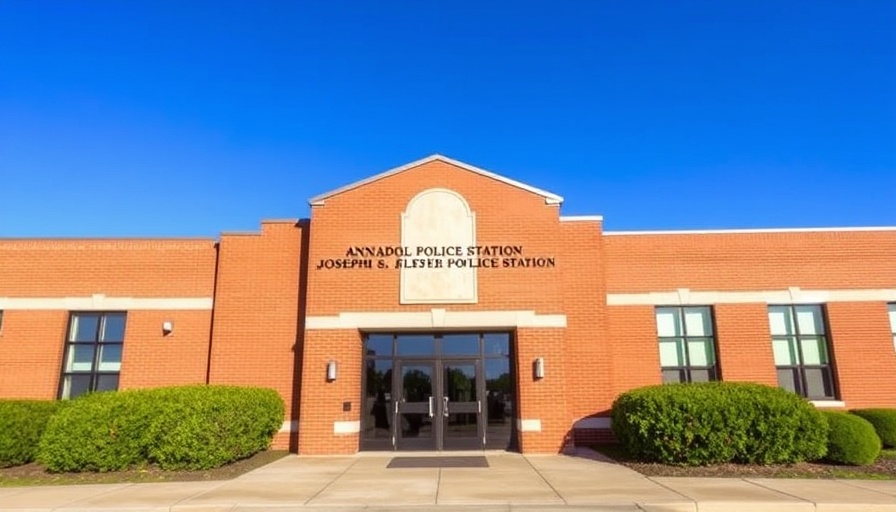
Restoration of Credibility: Annapolis Police Reclaims High Standards
In a significant turnaround that highlights a commitment to excellence within law enforcement, the Annapolis Police Department has regained its prestigious accreditation from the Commission on Accreditation for Law Enforcement Agencies (CALEA) after nearly a year-long suspension. This achievement, heralded by Police Chief Ed Jackson, underscores the department's dedication to professional integrity and community relations.
What CALEA Accreditation Means for Police Departments
Attaining CALEA certification, often referred to as the "gold standard" in public safety, signals that a police department adheres to strict standards aimed at ensuring transparency, community engagement, and operational excellence. For agencies like Annapolis, re-establishing this certification isn't just about meeting administrative benchmarks; it entails ongoing commitment to comprehensive evaluations, including annual reports and thorough assessments every four years. The emphasis on current policies regarding use of force and evidence management resonates profoundly in today's climate of heightened scrutiny for law enforcement.
Impact on Officer Morale and Community Trust
Even amidst tribulations, the reinstatement reflects positively on officer morale and public trust. As Chief Jackson stated, the accreditation serves as a reassurance to the community about the quality of policing they can expect. On the flip side, however, the tumultuous relations between the department and the officers' union have surfaced critics questioning whether leadership has effectively engaged with its own workforce. The union's concerns underscore a pressing need for fosters bonds within the department that promote collective growth rather than division.
Beyond Accreditations: The Broader Implications for Modern Policing
The reinstatement of Annapolis Police's CALEA accreditation shines a spotlight not only on the agency’s performance but also on a broader conversation surrounding police reforms and community engagement. As agencies face growing pressure to adapt to evolving public expectations, Annapolis serves as a case study for effective adaptation to accountability measures. Can achievements such as this serve as a template for other cities striving for reform?
Future Predictions: The Path Forward for Law Enforcement
In a rapidly changing environment, where technology meets community expectations, the role of police accreditation will likely evolve. With advancements in policing technologies—such as body cameras and AI analytics—departments are not just aiming for compliance but leveraging these tools to enhance transparency. As these trends progress, how will they shape the metrics for accreditation in the coming years?
Call to Action: Engage with Your Local Police Department
The reinstatement of CALEA accreditation by the Annapolis Police is more than a badge of honor; it's a chance for every community member to engage. Local residents are encouraged to reach out, learn about their department's policies, and actively participate in community forums that foster dialogue. Understanding the processes and challenges within law enforcement can pave the way for a more engaged and supportive relationship between officers and the communities they serve.
 Add Row
Add Row  Add
Add 

 Add Element
Add Element 




Write A Comment